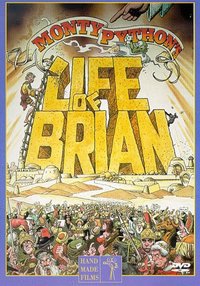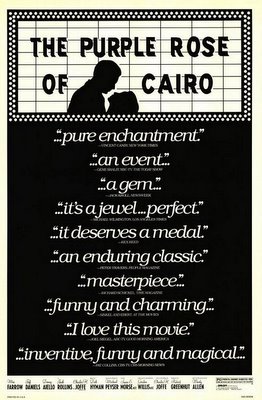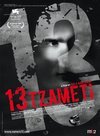monty python's life of brian

personal views and comments regarding one aspect which makes my life more exciting




 The elephant man brings the great combination of David Lynch, as a director, and young Anthony Hopkins, playing Dr. Frederick Treves. Therefore, the fact that the movie is a success is not such a big surprise. Gradually introducing The Elephant Man, a character whose both physical and psychological profile are revealed step by step, the movie presents various sides of a "a freak show". From a cirsus attraction, John Merrick becomes a London high-society attraction, never actually being able to defeat human prejudice, fear and disgust by convincing the majority he is a human being on top of everything else.
The elephant man brings the great combination of David Lynch, as a director, and young Anthony Hopkins, playing Dr. Frederick Treves. Therefore, the fact that the movie is a success is not such a big surprise. Gradually introducing The Elephant Man, a character whose both physical and psychological profile are revealed step by step, the movie presents various sides of a "a freak show". From a cirsus attraction, John Merrick becomes a London high-society attraction, never actually being able to defeat human prejudice, fear and disgust by convincing the majority he is a human being on top of everything else.


Hans Beckert: I can't help what I do! I can't help it, I can't... Criminal: The old story! We never can help it in court!
Hans Beckert: What do you know about it? Who are you anyway? Who are you? Criminals? Are you proud of yourselves? Proud of breaking safes or cheating at cards? Things you could just as well keep your fingers off. You wouldn't need to do all that if you'd learn a proper trade or if you'd work. If you weren't a bunch of lazy bastards. But I... I can't help myself! I have no control over this, this evil thing inside of me, the fire, the voices, the torment!
Schraenker: Do you mean to say that you have to murder?
Hans Beckert: It's there all the time, driving me out to wander the streets, following me, silently, but I can feel it there. It's me, pursuing myself! I want to escape, to escape from myself! But it's impossible. I can't escape, I have to obey it. I have to run, run... endless streets. I want to escape, to get away! And I'm pursued by ghosts. Ghosts of mothers and of those children... they never leave me. They are always there... always, always, always!, except when I do it, when I... Then I can't remember anything. And afterwards I see those posters and read what I've done, and read, and read... did I do that? But I can't remember anything about it! But who will believe me? Who knows what it's like to be me? How I'm forced to act... how I must, must... don't want to, must! Don't want to, but must! And then a voice screams! I can't bear to hear it! I can't go on! I can't... I can't...

 I think that Crash is a breathtaking movie from all points of view. I couldn't actually find any flaws able to shadow the experience of watching it, despite several comments and reviews i've read. The directing is great, the acting just the same, while the soundtrack helps building a threatening atmosphere. It's that kind of thriller which actually makes you shiver, not necessarilly because it frightens you, but because it makes you realize your helplessness in such a painful manner. It gives you chills just because it makes you realize you are part of a world and of a society which allows such things to happen. Which doesn't give much on humanity or dignity. The movie goes up and down, and somehow forces you to place yourself in the shoes of the characters. Or at least it should appeal to you that way. It makes you think twice about yourself, your morality, your friends, your neighbourhood, your social whereabouts. It makes you wanna change things, but it also induces a question like: "can things actually be changed?".
I think that Crash is a breathtaking movie from all points of view. I couldn't actually find any flaws able to shadow the experience of watching it, despite several comments and reviews i've read. The directing is great, the acting just the same, while the soundtrack helps building a threatening atmosphere. It's that kind of thriller which actually makes you shiver, not necessarilly because it frightens you, but because it makes you realize your helplessness in such a painful manner. It gives you chills just because it makes you realize you are part of a world and of a society which allows such things to happen. Which doesn't give much on humanity or dignity. The movie goes up and down, and somehow forces you to place yourself in the shoes of the characters. Or at least it should appeal to you that way. It makes you think twice about yourself, your morality, your friends, your neighbourhood, your social whereabouts. It makes you wanna change things, but it also induces a question like: "can things actually be changed?". 


planner spots. some ideas. There is a conversation in the beginning of the movie between Johnny and his brother, Jack, when Johnny admits how much he admires his brother for knowing all the stories in the Bible. And Jack replies that he wants to be a good preacher (if i remember correcly) and help people, and that you have to know all the stories in order to know which story to tell a person in order to help him/her. A very important aspect for a planner as well. The more you know, the more stories you acknowledge, the more likely you are to deliver the right one to the target, the one that gets to them. Maybe i'm being a litte absurd, but that's what i thought at the moment.
And then, there was another conversation when Johnny first auditions for a recording studio. And he and his band first play a very common gospel, and the head of the recording studio stops them and ask Johnny whether that very common gospel, that people could hear daily on the radio was the song that he would have wanted to sing, if he was to sing something for the last time in his life, something that should communicate to people all the feelings he has had along his life. Cause that was what people wanted: that special touch of feelings, of experience. And my guess is that this applies to brands and ads. That's the thing in which the success of Honda resides. Different from the ads we all grew so fed up with, different from the same type of advertising we are exposed to daily, this brand managed to capture bits of human feelings and transmit them.

 a friend of mine recommended a movie i can hardly wait to watch: Tzameti, directed by Géla Babluani.
a friend of mine recommended a movie i can hardly wait to watch: Tzameti, directed by Géla Babluani.
 Billy Wilder's "The Apartment" (1960) won five major Academy Awards out of ten nominations, including Best Picture, Best Director, Best Screenplay, Best B/W Art Direction/Set Decoration, and Best Film Editing, Jack Lemmon for Best Actor, Shirley MacLaine for Best Actress and Jack Kruschen for Best Supporting Actor. It was a triple win for Wilder as Director (Wilder's second directing Oscar), Producer, and Screenplay author.
Billy Wilder's "The Apartment" (1960) won five major Academy Awards out of ten nominations, including Best Picture, Best Director, Best Screenplay, Best B/W Art Direction/Set Decoration, and Best Film Editing, Jack Lemmon for Best Actor, Shirley MacLaine for Best Actress and Jack Kruschen for Best Supporting Actor. It was a triple win for Wilder as Director (Wilder's second directing Oscar), Producer, and Screenplay author.
 Apparently, Meet me in St Louis (1944) is the second Judy Garland musical i've watched this week. Enjoyable, full of romance, songs, dance and puns, the movie undoubtedly proves Judy Garland's qualities.
Apparently, Meet me in St Louis (1944) is the second Judy Garland musical i've watched this week. Enjoyable, full of romance, songs, dance and puns, the movie undoubtedly proves Judy Garland's qualities.